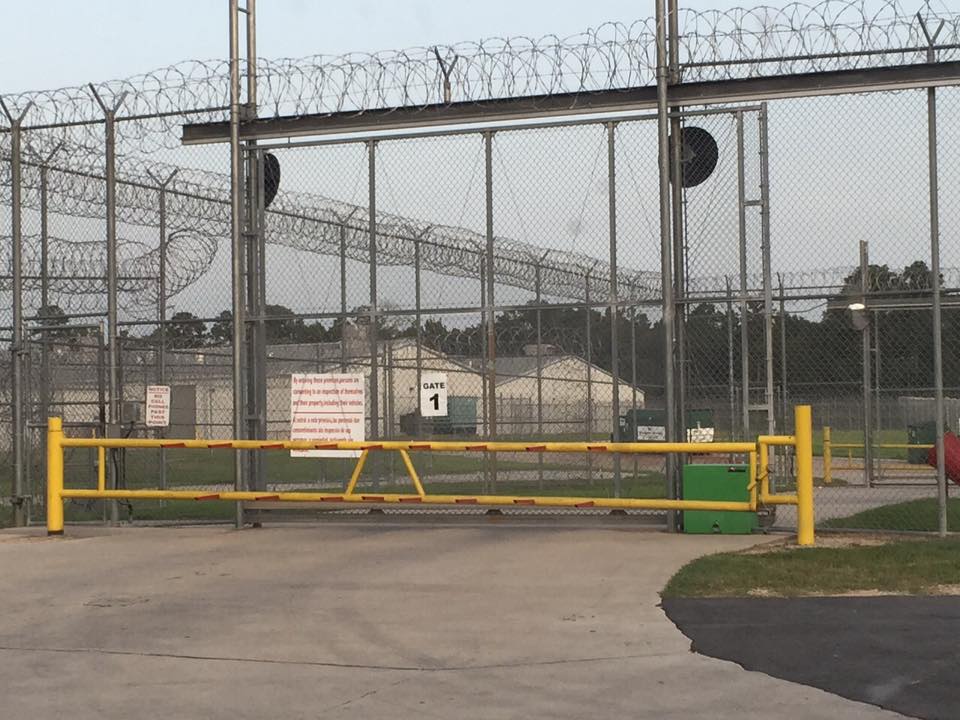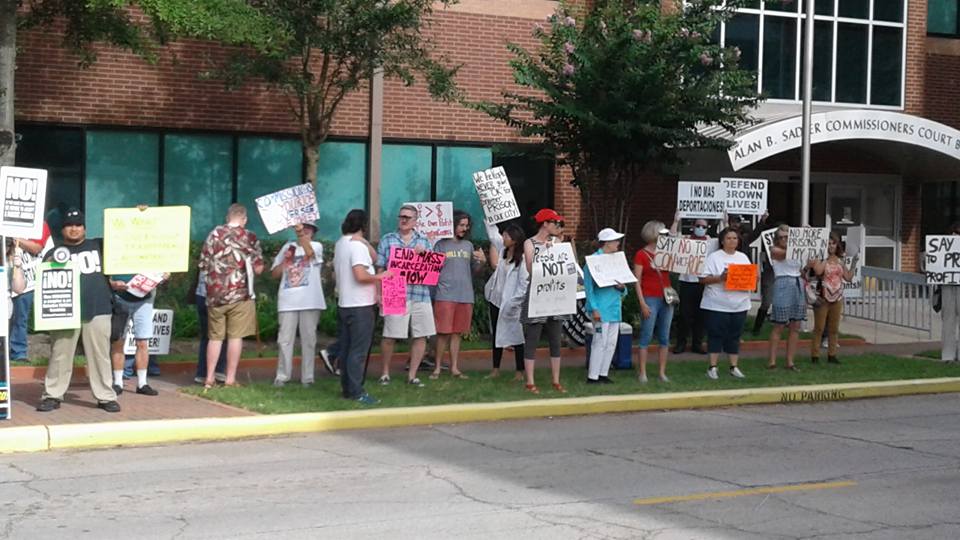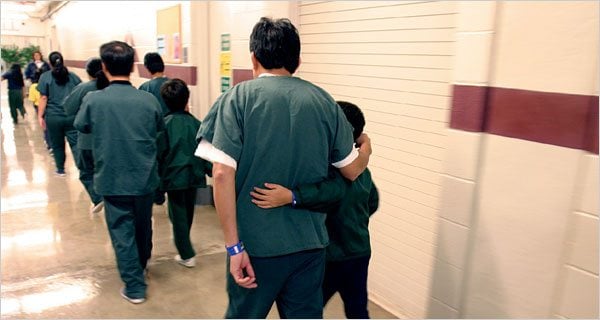
Immigrants Launch Hunger Strike in Texas Detention Center

Above: Activists and members of families separated by immigration detention leave a Father's Day gift outside the Polk County facility in June.
Immigrants in a for-profit detention center in Conroe are refusing to eat to protest conditions at the facility. The protests in Texas follow a similar hunger strike that began two weeks ago at a Tacoma, Washington, detention center. Both facilities are owned by scandal-plagued GEO Group, the second-largest private prison company in the world. The protests are part of a wave of hunger strikes that immigrants have started in detention centers across the nation to call attention to what they say is the unjust practice of locking up immigrants and separating families through deportation.
The families of the detainees on Wednesday gathered outside the all-male Joe Corley Detention Facility north of Houston to call on jail officials not to retaliate against the hunger strike leaders. Adelina Caceres said that her partner, David Vasquez, has been kept in solitary confinement at Corley as punishment for helping to start the strike. Vasquez has been in the detention center for nearly a year, she said.
As of Tuesday, 120 detainees were participating in the strike, according to Cristina Parker, an organizer with Grassroots Leadership, an Austin-based group that opposes private prisons. The detention center is capable of holding 1,517.
Vasquez and Manuel Martinez began the strike Sunday at midnight, according to advocates. In individual letters released Monday, the two men demand an end to deportations as well as the controversial Secure Communities program, which uses local law enforcement to funnel immigrants into the federal government’s deportation system.
The men say many detainees have already paid fines and done time in county jails, only to be picked up by Immigration and Customs Enforcement (ICE) upon release and put into immigrant detention centers.
This aggressive dragnet is partly driven by a mandate established by Congress in 2006, a quota requiring ICE to fill 34,000 prison beds every night. Advocates say the mandate leads to the detention of U.S. residents as well as undocumented immigrants who commit minor infractions. But it’s been a boon to private prison companies, essentially guaranteeing a steady stream of detainees.
Echoing those in Washington State, Texas detainees are decrying overcrowding and unjust treatment by guards, who they say are disrespectful and verbally abusive. They call for better food, affordable prices at the commissary and reasonable phone rates. Neither ICE nor the GEO Group responded to requests for comment.
A detention center in Elroy, Arizona, saw two different hunger strikes last summer, one by a group of activists called the “Dream 9,” who together attempted to cross the Mexican border and were placed in detention. They were eventually released while they pursue their asylum cases. In October, a group of DREAM Act students who named themselves the “Dream 30” and who together attempted to cross the border at Laredo, similarly began a hunger strike inside an El Paso detention center.
The most recent strike, in Tacoma, peaked at 750 participants. That number eventually dwindled to three, but those strikers continued into their 13th day on Wednesday. Yesterday, two of the three protesters sent messages of encouragement to the Texas strikers. In a recording in Spanish, Ramon Mendez Pascual says, “The only thing I want to say is don’t be afraid, we must keep going, so that we are heard and so that we can be free.”
Update: After publishing this story, GEO Group responded to an email for comment with the following: “Our company has had a long-standing public-private partnership with U.S. Immigration and Customs Enforcement (and its predecessor agency, the Immigration and Naturalization Service) that dates back to mid-1980s. GEO’s immigration facilities provide high quality services in safe, secure, and humane residential environments, and our company strongly refutes allegations to the contrary.” The company would not address the hunger strike.


